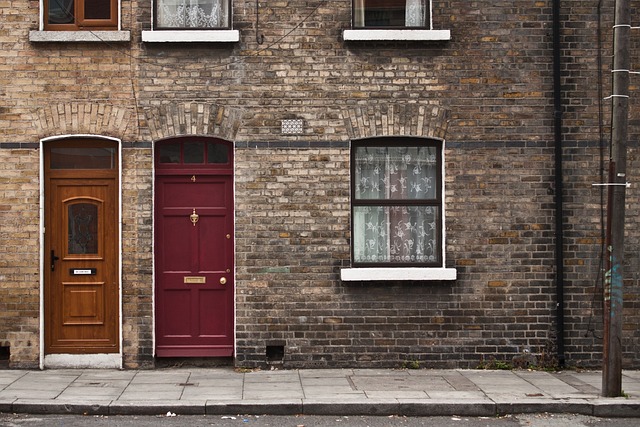Buying a home can be a daunting task, and one that you want to make sure you get right. As with any big purchase, it’s important to do your research and be prepared. But what exactly should you be looking for when purchasing a home? In this blog, we’ll outline some helpful tips for homebuyers to ensure that they’re making an informed decision and getting the best value for their money. From understanding the true cost of homeownership to evaluating the neighborhood and assessing the property condition, we’ll cover everything you need to know before taking the plunge into homeownership. So, whether you’re a first-time buyer or a seasoned pro, read on for our top tips on what to look for when purchasing a home.
1. Eligibility criteria for buying a home
When it comes to buying a home in Singapore, there are some eligibility criteria you need to meet. The first requirement is that you must be at least 21 years old. Additionally, you need to have an adequate down payment, which is typically 20% of the purchase price. Before deciding to buy, it’s important to understand what you can afford, as recurring costs such as property taxes, homeowners insurance and maintenance can add up quickly.
Assessing your debt before buying is also vital. Buyers with no other debt may be able to budget as much as 40% of monthly income to housing. You should have an idea of what you owe before buying, so you can consider your total monthly costs for your home.
Getting preapproval is also important, as this will give you an idea of how much you can borrow, based on your income and credit score. It’s recommended that you target the best lender for your needs, so you can secure the best rates and terms.
When looking at potential properties, proximity to work and schools is a major consideration. Access to public transportation options is also important, as this can make commuting easier and more affordable.
Working with a good agent is crucial, as they can help you navigate the process of buying a home in Singapore. They will have access to listings you may not have found on your own, and they can provide expert advice on the most desirable neighborhoods.
Finally, researching neighborhoods before buying is key. You should look into factors like crime rates, access to amenities, and the overall vibe of the neighborhood. This will help you make an informed decision about where to buy your new home.
2. Assessing your debt before buying
Assessing your debt before buying a home is crucial, and it should be one of the first things you do when preparing to buy. According to the eligibility criteria, lenders usually require a debt-to-income ratio of less than 43%. So, it is essential to take a closer look at your existing debts and outstanding payments.
Start by gathering all your credit card and loan statements to get a clear picture of your financial situation. From there, calculate your debt-to-income ratio to see how much you can afford to pay towards a mortgage each month realistically.
It is also essential to review your credit score to ensure you can secure a mortgage with an appealing interest rate. You can request a free credit report from the three major credit bureaus once a year, so take advantage of this opportunity. If your score is not in the excellent range, it is crucial to improve it before applying for a mortgage.
Once you have a clear understanding of your debts and credit score, you can better plan your budget and avoid overextending yourself when it comes to mortgage payments. Remember that buying a home is a long-term investment, and taking the time to assess your debt can help you make the best possible purchase for your financial future.
3. Importance of preapproval
When it comes to purchasing a home, preapproval is an essential step in the process. Before diving into house hunting, potential homebuyers must first assess their eligibility criteria for buying a home and assess their debt to ensure they can afford the purchase.
Obtaining preapproval from a lender is crucial as it gives sellers peace of mind knowing that the buyer they choose can afford the home. Plus, preapproval can help avoid making the costly mistake of falling in love with a home that is out of your budget.
To get preapproved, borrowers must provide W-2 wage statements, tax returns from the past two years, and current pay stubs to prove their income. Lenders will also look at credit scores, bank statements, and employment verification to approve borrowers.
Aside from the financial benefits, preapproval can also help potential homebuyers narrow down their search. It provides a written estimate from a lender of how much they will likely be able to borrow, making it easier to decide on a budget.
When considering a home, it’s essential to take all factors into account, including proximity to work and schools, public transportation options, and maintenance fees for private homes. Buyers should also research neighborhoods thoroughly before making a decision.
Lastly, working with a good agent is crucial in guiding buyers through the process and ensuring they are getting the best deal possible.
Overall, preapproval is a crucial step in purchasing a home, and potential buyers should explore their options to help them make a fully informed and comfortable buying decision.
4. Proximity to work and schools
When looking for a new home, one important factor to consider is the proximity to your work and your children’s schools. Living close to work can save you time and money on commuting, while being nearby good schools can provide a better education for your children.
However, it’s important to also consider potential downsides such as noise, parking, and traffic. If these are concerns for you, it may be worth considering buying a slightly further away from these places, but still within a reasonable distance, to avoid any negative impacts on your daily life.
To find the best location for your needs, research the area and take note of the public transportation options, traffic patterns, and any road construction projects in the near future. It’s also helpful to consult with a professional real estate agent who has experience and knowledge about your desired location.
By taking the time to carefully consider the proximity to your work and your children’s schools, you can make a smart investment in your future and ensure a happier and more convenient lifestyle in your new home.
5. Considering public transportation options
When buying a home, it’s important to consider transportation options, especially if you don’t plan on driving. One option is using public transportation. It’s essential to research what transportation options are available in the area you’re looking to buy. Check out the local transit system to see how accessible it is to your work, school or other important places. Being situated near public transportation can also be beneficial in terms of increasing your home’s resale value.
Another important factor is the distance between your home and the transit options. If the transit stops or stations are too far away from your house, it may not end up being as convenient as you thought. This is why you should assess the proximity to transportation as well as the frequency and reliability of the service. If you’re going to rely on using public transportation, make sure the options available can get you to where you need to go, and at the time you need it.
Furthermore, if you’re considering using public transportation, it’s important to research the cost involved. Take note of any fares or fees, and weigh them against the cost of driving, parking, or using ride-hailing services. Some transit systems may also offer discounts, passes or special deals, so it’s worth investigating to see if you can snag a bargain.
Taking public transportation also means you won’t have to deal with traffic, which can be a major time saver. However, it’s important to make allowances for possible delays, cancellations or changes in schedule which might impact your commute. This is something to research as part of your investigation of the area and the transportation options available.
Overall, when thinking about purchasing a home, it’s essential to factor in public transportation options. It may not be a make-or-break for some buyers, but for those who don’t plan on driving or don’t want to deal with the hassle of owning a car, public transit can be a valuable alternative. By taking the time to research and explore the transportation options, you’ll be able to make a more informed and educated decision regarding your new home purchase.
6. The importance of a good agent
When it comes to buying a home, having a good property agent can make all the difference. A agent can help you find the right house in the right neighborhood to fit your needs and budget. They can also negotiate with sellers to get you the best deal and guide you through the complex process of closing the deal.
But how do you find a good agent? Talk to friends and family members who have recently bought or sold a home in your area to get recommendations. Look for a agent with a track record of success in your desired neighborhood and someone who listens to your needs and preferences.
Once you’ve found a agent, be clear about what you’re looking for in a home, including your budget and any must-have features. Your agent should be able to help you narrow down your options and show you houses that meet your criteria.
Remember, your agent is there to represent your interests, so don’t be afraid to ask questions, express concerns, or request additional information or clarification. With a good agent on your side, buying a home can be an exciting and successful experience.
7. Factors to consider when looking at a home
Looking for a home is both exciting and daunting. The previous blog sections have covered crucial aspects to keep in mind when purchasing a home, such as eligibility criteria, preapproval, and researching neighborhoods.
Now, let’s dive into seven factors to consider when looking at a home.
Firstly, the home’s age, style, and condition of appliances play a vital role in the home’s appeal and future resale value. It is important to assess this before making an offer.
Secondly, the price of the home should be considered as overstretching yourself can lead to unexpected financial stress. Pre-determining your budget is essential when looking for a home.
Thirdly, the seller’s incentive to sell can determine whether or not you can negotiate on the asking price.
Fourthly, maintenance mode is a critical factor as a well-maintained home will be cost-efficient in the long run. It is worth paying attention to the upkeep of both the internal and external features of the home.
Fifthly, the location and ease of access to the home, as well as its proximity to work and schooling, will facilitate your daily life. Failure to consider this could result in a difficult commute or a child being unable to attend their desired school.
Sixthly, noise from neighbors can be distracting and create unnecessary tension. Before making your purchase, assessing how loud or quiet the surroundings of the home can be.
Seventhly, it’s essential to be aware of the indoor air quality within the home you’re considering. SunRadon’s continuous radon monitor is an excellent tool for assessing radon gas levels, which can vary depending on the geographic location of the property. Radon is a naturally occurring, radioactive gas that can pose health risks when present in high concentrations. It is impossible to detect without testing.
In conclusion, while there are numerous factors to consider when looking for a home, it is important to take your time in assessing each one so that you can make the best possible decision. With the tips identified in this blog, you are well-equipped to make an informed purchasing decision.
8. The significance of your credit score
In the process of buying a home, your credit score plays a significant role. Lenders use your credit score to determine whether you are eligible for a mortgage and what interest rate you’ll get. Before applying for a mortgage, it’s crucial to check and strengthen your credit score. Assess your debt and make sure to pay your bills on time. Having a credit score of at least 620 is generally required by most mortgage lenders, although some may still consider applicants with lower credit scores. An FHA loan can benefit those with a lower credit score or who spend a significant portion of their income on housing. Although credit score requirements vary based on loan type, mortgage lenders generally require a 620 credit score to buy a home. By keeping a good credit score, you can improve your chances of qualifying for a mortgage and get a better interest rate, which ultimately will benefit in the long run.
9. Maintenance fees for private homes
When purchasing a private home such as new launch condo or landed house, it is important to consider maintenance fees. These fees are paid on a monthly basis and help cover the costs of maintaining the property, including cleaning, repairs, security, and landscaping.
Before buying a home, it is vital to assess your financial position and budget accordingly. Maintenance fees can vary greatly depending on the type of property you buy and the amenities it offers.
In some cases, they can be quite steep, especially in luxury developments with extensive facilities.
To avoid being caught off guard by unexpected fees, it is crucial to research the maintenance costs associated with the particular property you are interested in. You can obtain this information from the property developer or the management corporation.
In addition to maintenance fees, other recurring costs to consider include property taxes, utility charges, and insurance premiums. Basing on your research and your budget should help you make an informed decision on whether you can afford to purchase the property and meet the ongoing financial commitments.
Looking for a qualified and reputable property agent who will help you through the home buying process is also essential. An agent can assist in finding suitable properties within your budget, and provide guidance on maintenance costs and other factors to consider.
To sum it up, it’s wise to research the associated recurring costs of owning a private home and identify the maintenance fees involved to ensure it fits within your financial capabilities. Furthermore, remember to consider all aspects of your lifestyle and proximity to schools and work when making your choice.
10. Researching neighborhoods before buying
When looking to purchase a home, it is important to research and explore neighborhoods before making a decision. This is especially important for those who are unfamiliar with the area they are considering. Researching neighborhoods can help you find the right fit for your lifestyle and needs.
To begin your research, start by assessing proximity to work and schools, as well as public transportation options. These factors can greatly impact your daily routine and commute time. Additionally, it is important to consider the overall safety of the neighborhood, including crime rates and the availability of emergency services.
Once you have narrowed down suitable neighborhoods, it is beneficial to explore the community by visiting local shops and restaurants, attending community events, and talking to residents. This can give you a better sense of the community’s personality, culture and vibe.
It is also recommended to research and consider the local school district’s ratings, as this can greatly impact the long-term value of your home. Furthermore, assessing the proximity to parks and recreational facilities can be important for families with children.
In addition to these factors, it is crucial to keep your own personal lifestyle and activities in mind. Are you someone who enjoys nightlife and entertainment? Then you’ll want to ensure a neighborhood that offers those options. On the other hand, if you prefer a more peaceful lifestyle, you may prefer a quieter residential neighborhood.
All in all, researching and exploring neighborhoods is a crucial step in the home buying process. Taking the time to find the right fit can greatly improve your overall quality of life and satisfaction with your new home.







